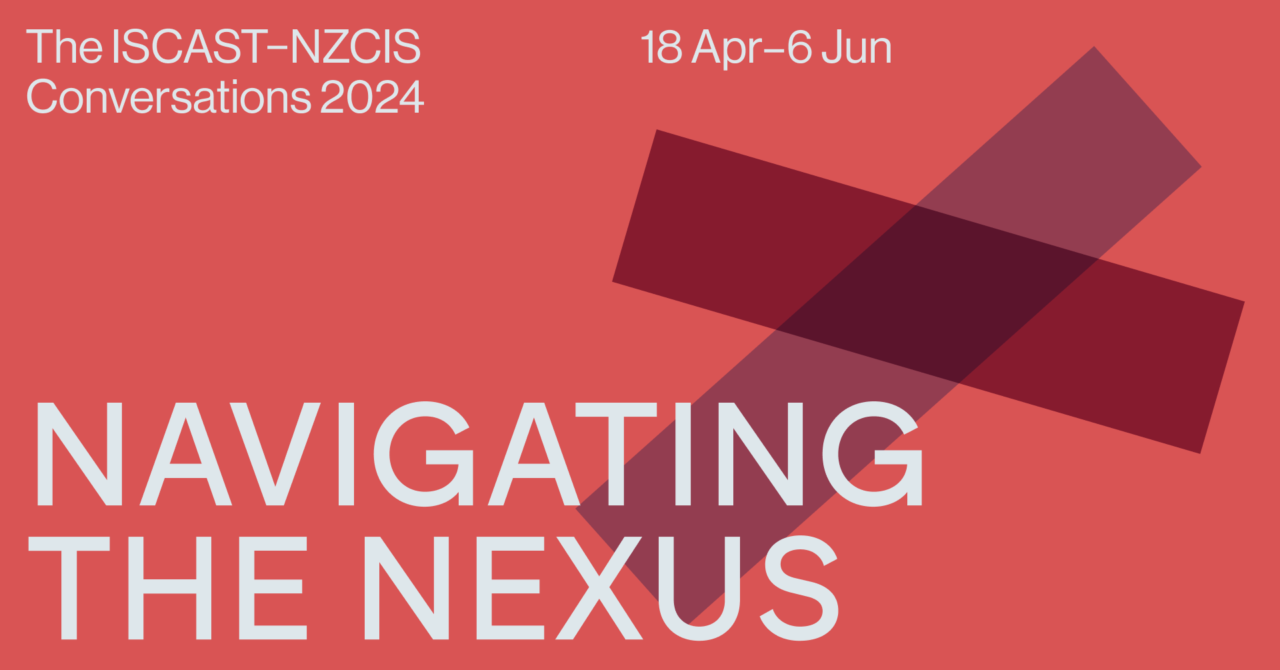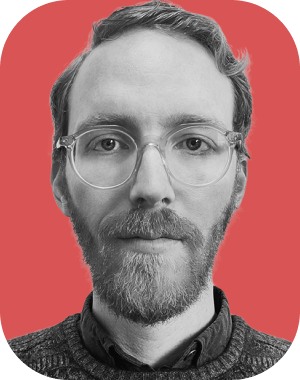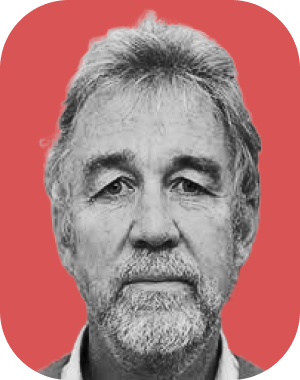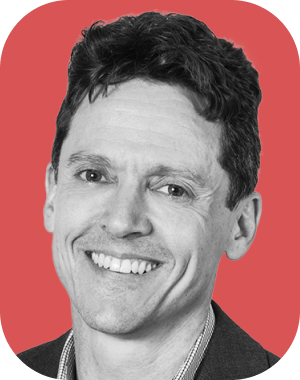Are you ready for a jam-packed series of wide-ranging discussions at the intersection of science and Christianity?
“Navigating the Nexus” promises 8 highly interactive and intellectually stimulating weekly discussions for curious minds, tackling the endless (and endlessly fascinating) questions surrounding science and Christian faith.
Join us online as we hear from a vast range of acclaimed speakers on questions such as:
- How should we read the Genesis creation story today?
- Is ageing a creational good?
- How can Christians face the possibility that serious enduring climate change is now inevitable?
- How was Darwin’s theory of evolution used as justification for historical racial conflicts?
- Does science require love?
Thursday 18th Apr 2024 @ 6:30 pm –
Thursday 6th Jun 2024 @ 7:30 pm
Online (Zoom)

After several themed ISCAST–NZCIS Conversations on creation care, future technologies, and ethics, we are excited to announce another open series welcoming speakers to present on any topic within the science–faith intersection.
DETAILS:
- Thursday nights from 18 April until 6 June
- Starts 6:30 p.m. AEST or 8:30 p.m. NZST.
- Presentation: 30 minutes
- Discussion & Questions: 30 minutes +
PRICES:
For this Conversations series, you can either register for the full series, or register for separate sessions.
We’re offering ISCAST and NZCIS members 50% off. If you’re a student member, you can register for free! Become a member of ISCAST or NZCIS today.
- $70 for the full series ($35 for ISCAST/NZCIS Members)
- $20 for student/concession, full series (FREE for student/concession members of ISCAST or NZCIS)
- $15 per session ($7.50 for ISCAST/NZCIS members)
About the ISCAST–NZCIS Conversations
Since 2020, ISCAST and New Zealand Christians in Science have run the Conversations series, with an aim to promote a dialogue between the sciences and the Christian faith. Experts are invited to speak on their topic, which is then followed by a Q&A and discussion.
“The result of the Conversations for me is that theology and science together now truly inform my worship—no doubts, no niggles, no uncertainty.”
“New subjects and old ones, presented brilliantly.”
Please Note
ISCAST’s aim is to generate a constructive conversation and, while ISCAST and NZCIS are committed to orthodox Christian faith and mainstream science, the Conversations speakers may come from a range of positions and do not represent either ISCAST or NZCIS.
Speakers & Topics
 Building Radical Hope: Theology past the Climate Tipping Point
Building Radical Hope: Theology past the Climate Tipping Point
Bethany Sollereder
18 April
Every year brings new record-breaking heat waves and more extreme weather events. The world’s climate is changing, with 2023 breaking the 1.5℃ threshold as an annual global average above Holocene temperature norms. This talk will ask how we can theologically encounter the possibility that serious enduring climate change is now inevitable. What does hope look like in this new world? What responsibility do humans have towards other species and to the most vulnerable of humans in this time of transition? This talk will look at the hard topics of death, suffering, hope, and transition in light of our climate crisis.
Speaker Bio
Bethany Sollereder is a Lecturer in Science and Religion at the University of Edinburgh. She specialises in theology concerning evolution and the problem of suffering and is currently working on the theological aspects of climate change. Bethany received her PhD in Theology from the University of Exeter and an MCS in interdisciplinary studies from Regent College, Vancouver. She is the author of God, Evolution, and Animal Suffering: Theodicy without a Fall and Why is there Suffering? Pick your own theological expedition.
Christian Scientists and Technicians in an Age of Mission
Wei-Han Kuan
25 April
Friends and members of ISCAST already know that Christian faith and scientific endeavour are not only compatible, but arguably inextricably interlinked. Human technological and scientific endeavour, at least in the Eurocentric world after the first millennium, has been driven by Christian faith presuppositions. The story of the Christian origins of scientific thought and method has not only been lost but is today explicitly negated. Faith is put in direct opposition to science, and often denigrated as unscientific and an inferior class of knowledge or thought.
Meanwhile, the Christian church across the world remains committed to a missionary stance towards the world. Across all cultures and languages, faithful followers of Christ are pressing ahead in obedience to the Great Commission. Where then, may there be space for Christian scientists and technicians in our ever-present age of mission? What are the special opportunities for engagement? What advantages are there in cross-cultural mission for those who speak the universal language of science?
Wei-Han will reflect on biblical texts, church and missionary history, his lifelong fascination with all things science (that aren’t physics), and his knowledge of global opportunities to serve with CMS.
Speaker Bio
Rev. Dr Wei-Han Kuan is the Executive Director of the Church Missionary Society in Victoria. Wei-Han is Malaysian Chinese by birth and went to high school in Singapore, where he did GCSE “O” Levels in physics, chemistry, and biology. He is married to Valerie and they have three school-aged children. After a brief career in taxation law he trained for ministry at Ridley College. He served as an Anglican minister in local church ministry before coming to CMS. Wei-Han’s research into the history of evangelicalism has been published as Foundations of Anglican Evangelicalism in Victoria 1847-1937.
 McGilchrist’s Hemisphere Hypothesis, Chatbot Therapy, and the Nature of Attention
McGilchrist’s Hemisphere Hypothesis, Chatbot Therapy, and the Nature of Attention
Jacob Sawyer
2 May
Psychiatrist, philosopher, and literary scholar Iain McGilchrist claims that conceptions of the differences between the left and right hemispheres of the brain from 90s pop-psychology are misguided, but that there are indeed hemisphere differences which we need to pay attention to. In this talk, I will seek to briefly outline his theory of the functional differences of the brain hemispheres, how he sees these playing out in various psychopathologies and neurodiversities, and ultimately in the “[un]making of the Western world.” I will then discuss how this speaks into my own research into psychological talk-based therapy provided by AI-driven conversational computer programmes (chatbot therapy), itself reflecting dynamics of attention and theories of knowledge and language outlined by McGilchrist. Finally, I will unpack some implications of the hemisphere hypothesis for theology, with a special emphasis on “attention as a moral act.”
Speaker Bio
Jacob is a father to Archie and Noah, and husband to Miriam. He is currently an Honours student at AUT, studying psychology, and has completed a dissertation looking at AI-assisted psychotherapy. His background is in theology, with his MTh thesis published as The Hidden Authorship of Søren Kierkegaard (Wipf & Stock, 2015). He has a persistent interest in language, learning, and relationality. He has worked in education and as a Baptist minister.

Love and Science in Charles Peirce’s Theism
Joshua Wilson Black
9 May
Does good science require love? What does it mean to love the world? Does a lovable world suggest a loving creator? These questions open up a discussion of the connection between theism and the motivations of scientific inquiry. These questions are also central to the work of the American philosopher Charles Peirce (1939-1914). Peirce’s thought has made significant contributions to ongoing work in the area of “science and religion.” In this talk, I’ll introduce the role of love in Peirce’s discussions of science and reality. For Peirce, science depends on love of both ideas and reality. I’ll sketch why Peirce takes scientific activity to harmonise with belief in God. In fact, for Peirce, most scientists who think they are atheists are in fact mistaken.
Speaker Bio
Joshua Wilson Black has degrees in mathematics, data science, and philosophy, including a PhD in philosophy from the University of Sheffield applying the thought of Charles Peirce to debates in contemporary philosophy. He is a lecturer at the New Zealand Institute of Language, Brain and Behaviour at the University of Canterbury, where he teaches statistical and computational methods and pursues research at the intersection of data science, linguistics, and philosophy. He is an Anglican lay person at home in the Anglo-Catholic tradition.
 Reading Darwin during the New Zealand Wars: Science, Christianity, Race and Politics 1830–1890
Reading Darwin during the New Zealand Wars: Science, Christianity, Race and Politics 1830–1890
John Stenhouse
16 May
Charles Darwin published On the Origin of Species by Means of Natural Selection, or, the Preservation of Favoured Races in the Struggle for Life in London in 1859. The first copies arrived in Britain’s southernmost colony, New Zealand, just as the colonial government went to war against Māori tribes in the province of Taranaki. Fighting between British troops and their Māori allies and several tribes soon spread north and east to engulf much of the North Island until 1872. In this talk, I argue that many settlers, politicians and some men of science read the Origin during and after the wars to naturalise—depict as natural, normal, and probably inevitable—racial conflict, the triumph of the fitter British and the decline and probable extinction of the Māori race. Those who read Darwin this way wielded evolutionary science as a weapon not only against Māori, often Mihinare (i.e. Māori Anglicans), but also against English Anglican church and missionary leaders who defended Māori land and political rights before and during the wars. Settler critics attacked what many considered a reactionary alliance designed to keep land and power in old hands and obstruct the progress of the colony.
Speaker Bio
Prof. John Stenhouse is an Associate Professor at the University of Otago. His research interests focus on the interconnections between science, religion, race, politics and gender in the modern world, using New Zealand as the major site of study.
John’s interest in this area developed through his childhood- His Father taught Zoology at the University of Queensland in the 1960s, after studying philosophy and science at the University of Otago. John states that he has always been interested in seeing how everything fits together and considering reality as a whole. In the late 1970s, he began to attend church which expanded this interest. Following this, he completed his PhD, The battle between science and religion over evolution in nineteenth century New Zealand.
John is also a member of the New Zealand Historical Association, the Religious History Association, the History of Science Society, the Pacific Circle Commission of the International Union for the History and Philosophy of Science, the Royal Society Historical Branch and a board member of the Otago Theological Foundation.
His recent publications include “Reading Darwin during the New Zealand Wars: Science, Religion, Politics, and Race,” Studies in the History and Philosophy of Science, vol. 96 (2022), pp. 87-99.
 A Fruitful Conversation
A Fruitful Conversation
Sarah Sweet
23 May
“The heavens declare the glory of God; the skies proclaim the work of his hands.” (Ps 19:1) As an astrophysicist I get to experience first-hand a sense of wonder and awe about God through studying his creation. In this talk I will share about my background, from growing up as a pastors’ kid who loved the night sky and was good at maths, to a committed Christian member of a local church who is also an academic at a secular university. I will give some anecdotes from interactions in both Christian and academic circles highlighting some common misconceptions about the perceived conflict between science and faith, and discuss how I am navigating this path – a work in progress as I try to have conversations which are “full of grace, seasoned with salt” (Col 4:6). I’ll include some thoughts from various resources which have helped me sharpen my faith and articulate my views in both directions, such as the importance of belief in doing science, and the scientifically investigable nature of God’s creation – orderly, rational, and abundantly generous, and reflecting a loving Creator.
I hope that my journey will help others as they too have fruitful conversations.
Speaker Bio
Dr Sarah Sweet is a Lecturer in Astrophysics & ARC DECRA fellow at the University of Queensland. She received her PhD from the University of Queensland in 2014. Sarah then worked at the Australian National University and at Swinburne University of Technology, before returning to UQ as a Lecturer in 2020.
Sarah’s research interests are in the formation and evolution of galaxies, investigating how the fundamental properties of galaxies affect their transition from the diverse, irregular shapes in the distant, long-ago Universe, to the grand-design spirals and puffy elliptical galaxies in the nearby, present-day Universe. She is also interested in the connection between science and business, particularly from the perspective of enabling fundamental research. Sarah enjoys spending time with her husband and their 4 children.
 Answers on Genesis and Science
Answers on Genesis and Science
Andrew Brown
30 May
The Bible tells an amazing story of how God makes the world and then reaches out to save it as people misuse the freedom, he gave them. Like any good book, it grabs the reader’s attention right at the start: “In the beginning,” say many Bible versions, “God created the heavens and the earth.” The very first chapter tells a grand story of a cosmic construction project. But for the modern reader, the problems begin straight away. Did this all happen in a week? How could the sun turn on only on Day 4? What does this have to do with the formation of our solar system and our planet? How could two human beings be shaped out of wet dirt and become the ancestors of all humanity? If these things are not literally true, isn’t “made up” the only other kind of literature there is? “History” and “make-believe”?
Speaker Bio
Dr Andrew grew up in the Port Stephens area of New South Wales, on the eastern Australian coast. He completed undergraduate degree studies in the USA before returning to Australia to undertake Bible college teaching and youth camp ministry along with further theological college studies. After Andrew married, he joined a pastoral team at a Baptist church and began research studies at the University of Queensland, both in Brisbane, Australia. Six years of country pastoring at Murwillumbah in rural north-eastern NSW followed. Soon after arrival at MST, he completed his PhD thesis in the reception history of the creation week in Genesis.
 Human Ageing as a Creational “Good”
Human Ageing as a Creational “Good”
David J. Hooker
6 June
Aversion toward the aged, “aging anxiety,” ageism, and scientific efforts to stop or reverse ageing, reveal a contemporary world struggling to accept the aged and the ageing process. Unfortunately, the response from the Christian theological community is unsure because it discordantly supports two fundamental yet polarised claims: (a) that human ageing is a good of creation, and (b) that human ageing is an effect of sin in the world. Such polarised claims are deeply problematic and need resolution.
This paper supports the core idea that human ageing is a good of creation. It briefly outlines three influential theological challenges to the core idea, then addresses one of those challenges in more detail: that natural physical death, as the precipitant of ageing, is the effect of sin in the world. An exegetical analysis leads to a dismissal of this challenge, leaving open the possibility that human ageing is a creational good.
This paper then employs the science of ageing to support the core idea. Molecular biology invites theology to view ageing as a genetically and systemically controlled symphony of coordinated processes built into the human body.
Speaker Bio
David Hooker has a master’s degree in science (molecular virology), a master’s degree in divinity (biblical studies and theology) and, most recently, a PhD in theology on the theme of human ageing. He is currently Publications Director at ISCAST and teaches in Monash University’s Bachelor of Biomedical Science degree, Melbourne, Australia. He has authored publications and patents in molecular biology, virology, and theology, and has pastored an evangelical cross-cultural church in Melbourne, Australia. He is currently and keenly expanding a research programme on a synthesis of the theology and science of human ageing.
 Building Radical Hope: Theology past the Climate Tipping Point
Building Radical Hope: Theology past the Climate Tipping Point
 McGilchrist’s Hemisphere Hypothesis, Chatbot Therapy, and the Nature of Attention
McGilchrist’s Hemisphere Hypothesis, Chatbot Therapy, and the Nature of Attention Reading Darwin during the New Zealand Wars: Science, Christianity, Race and Politics 1830–1890
Reading Darwin during the New Zealand Wars: Science, Christianity, Race and Politics 1830–1890 A Fruitful Conversation
A Fruitful Conversation Answers on Genesis and Science
Answers on Genesis and Science Human Ageing as a Creational “Good”
Human Ageing as a Creational “Good”